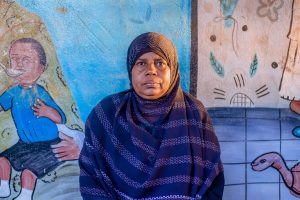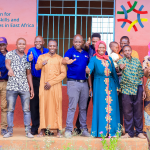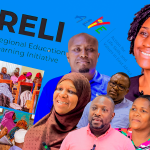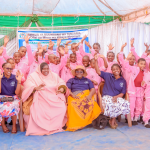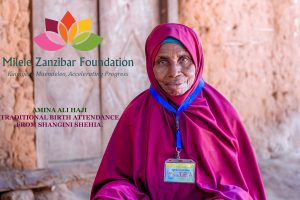
By Hamad Rashid
Milele Zanzibar Foundation is a non-government organization that uses Traditional Birth Attendance (TBAs) to sensitize and accompany pregnant women at Reproductive and Child Health (RCH) clinics for early booking and hospital deliveries.
The approach uses TBAs engaged 8 districts of Zanzibar, Unguja, and Pemba, among the places where Tanzania Kids Time has visited and interviewed the targeted, to see how the program benefited the community members.
According to Mwanaali MZF Health Program Manager, “MZF conducts quarterly meetings with TBAs to refresh them with their roles and responsibilities”
“Pregnant women in the community often go to traditional birth attendance when they think they are pregnant to be sure if the pregnancy is present or not, it’s like a culture, so we take the opportunity to educate and engage them to sensitize the community on the importance of attending early to the ANC services and to deliver at health facilities. This is because most women in the community seek help from TBAs when they are pregnant and even starting labor”
The above quotations from Mwanaali Haji Ali provide preliminary information on Why MZF and Traditional Birth Attendance.
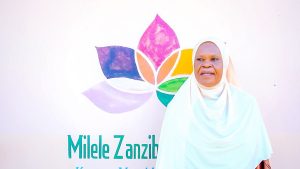
During the interview with Mwanaali Haji Ali also added, “We encourage the Government through the Ministry of Health to empower them and create an environment that enables them to do their work in a more secure environment, by training them on what to do in case of an emergency, so that they can be safe both themselves, the children and accompanied mothers either for ANC or delivery services.
TRADITIONAL BIRTH ATTENDANCE AND THEIR WORK EXPERIENCE
Mariam Omar Haji a Traditional Birth Attendance living at Kizungu Shehia shared during the conversation, “This is my 20th year of work I have never encountered challenges that hold the community or me back, I remember when we were on the way with a pregnant woman, she gave birth well and her breathing was fine. Also, others always come with problems like the discharge of water or bleeding, I always tell them to go to the Hospital”. advise the Government to find us a place to teach, some pregnant women go to the Hospital, and some delayed go to the Hospital and need help.
Another TBA is Mwanaid Omar Mgau she also shared her experience “One day I received a pregnant woman and her mother refused to go to the Hospital, complaining that Allah is anywhere and wherever can give birth safely but I insisted and agreed to go to the hospital but unfortunately delivered when and she gave birth in the car, we thanked Allah she didn’t have any problems, at the hospital the nurse midwife received and attending the mother and her child well.”
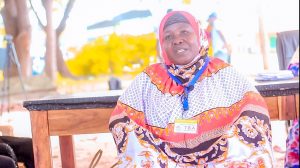
Mwanaid asked the Government to help them, “some pregnant women at home do not agree to give birth in the Hospital until they find us, we are asking if there is knowledge to educate us, we can learn so that can get the knowledge to deal with those at home and we will continue to sensitize the community the significant of attending to the Hospital”.
During the interview with women accompanied by TBAs, some shared that, sometimes labor pain comes suddenly, and not able to reach health facilities immediately, so they seek help from TBAs.
“When I was nine months pregnant, I was sick complaining of abdominal pain, and went to call the TBA to check if it was labor pain because I didn’t know if it was true labor pain or not, TBA told me that was true labor pain, but I gave birth at the same time because the labor pain appears very sudden”. explained Rehema Omar Nyange TBA from Kizungu Shehia.
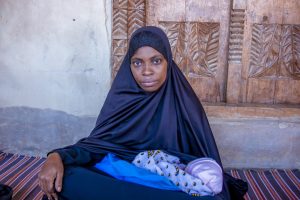
However, the data showed by Aziza Shavuai Omar’s HCP from Michenzani Health Center reflects good changes in reproductive health care services based on coverage due to the availability and work of TBAs in the community.
Shavuai states that “there is a large number of pregnant mothers coming in our Health facility, there is an increasing of women attending early 18 to 19 weeks of gestation and most of the women 50 to 55 complete 8 visits, insists TBA reaches the community easily and most women seek help from them”
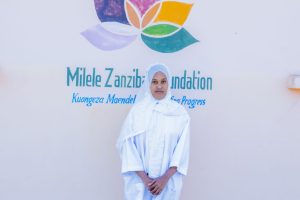
ATTITUDE FROM THE DISTRICT HEALTH MANAGEMENT TEAM.
Another important point of view given by the District Public Health Nurse Office, Moza Mohamed Ali the Coordinator of Mother and Child services at Mkoani District.
“Moza explained that TBAs have a major role in supporting, educating, and sensitizing pregnant women to attend early and deliver at health facility
By showing the experience Moza explained, “Before engaging TBAs and the challenges of lack of staff, the number of women attending early at ANC before 12 weeks and delivering at health facilities dropped to the extent of two to three, we asked ourselves why? We said it was a shortage of staff, and we found out that many pregnant women give birth at home through TBAs, now after engaging and educating TBAs on sensitization of the community about the importance of attending early and delivery at health facilities, we have seen that the number and coverage of ANC and delivery at health facilities have started to increase coverage are increasing, and most of the women are educated and sensitized, so this is enough evidence that the traditional midwives have a good contribution”
Moza added that these TBAs continue to help healthcare providers and the community, collaborating with providers based on the referral of pregnant women either for ANC or delivery services. Pregnant women commonly seek help and advice from TBA immediately after experiencing signs of pregnancy
Mozas’s call is to continue to use TBAs and give them training.
